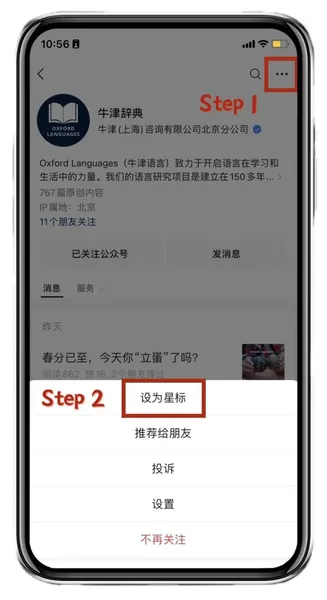“挖呀挖”翻译为 Dig, Dig,对吗?衍生作品更有趣!
在大大的花园里面挖呀挖呀挖,种大大的种子,开大大的花。
五一期间,这首温馨活泼的儿歌在短视频平台爆火,引得各行各业的网友 童心大发,争相改编。我们不免疑惑“挖呀挖”从何而来?缘何爆火?又折射出大众怎样的心态?
01
关于“挖呀挖”
我们先来看一则外媒报道:
How did “Dig and Dig”become so popular? On April 24th, “Miss Maocong (Taozi, a teacher)” posted a nursery rhymeon Douyin, which unexpectedly went viral. After that, many vloggers began to follow suit and shoot similar videos. 1
4 月 24 日,“毛葱小姐(桃子老师)”在短视频平台发布了一首儿歌意外爆火,之后众多博主也开始跟风拍摄类似的作品。
在报道中,“挖呀挖”被翻译为“ Dig and Dig ”——简单直接,通俗易懂;当然, 也有其它外媒将“挖呀挖”翻译为“Dig, Dig, Dig ”——这个歌名同时也是动画片《白雪公主》的主题曲之一;甚至还有标题用“Dig, Dig” 来描述这首歌:
图源:HKT iNews
总之,无论怎么翻译都离不开核心单词:dig。dig在辞典中的释义为 to make a hole in the ground or to move soil from one place to another using your hands, a tool or a machine,即用手或者工具和机器,在地上挖洞,或者将土壤从一个地方移动到另一个地方。 dig这个单词,除了表示“向下发掘”的动作之外,也有“探寻”之意。
例句:He had been digging into her past.
中译:他一直在探查她的过去。
Dig verb
/dɪɡ/
[intransitive, transitive]
★
to make a hole in the ground or to move soil from one place to another using your hands, a tool or a machine.
例句:They were digging for buried treasure.
中译:他们在挖掘埋藏的宝藏。
除此之外,两则报道中都没有用 children's song 来表示“儿歌”,而是采用了更为标准的 nursery rhyme来表示“儿歌”, nursery即 a child's room for a baby,也就是“托儿所”“育儿房”; rhyme即 a word that has the same sound or ends with the same sound as another word,意为“押韵的诗歌”。
将 nursery 和 rhyme 两个单词组合起来,便可以表示 a poem or song for young children, especially one that is old or well known,也就是“儿歌”或“童谣”。
Nursery rhyme noun
/ˈnɜːsəri raɪm/
[countable]
★
a simple traditional poem or song for children.
除此之外,报道中描述这首歌“意外走红”使用的英文是 unexpectedly went viral。我们对 virus(病毒)一词并不陌生,难道 went viral是“感染了病毒”吗?
其实 go viral 这个短语在报道中随处可见。比如,之前爆火的小游戏“羊了个羊”就曾被这样描述——
“Sheep-based elimination game on WeChat goes viral on Chinese social media.”
短语 go viral 非常形象地表现了“羊了个羊”和“挖呀挖”的迅速走红。viral 这个词其实是 virus(病毒)的形容词形式,因而也可以被引申为“病毒式传播”,来表示某物在网络上的飞速传播。(be sent rapidly over the internet and seen by large numbers of people within a short time)
Viral adj.
/ˈvaɪrəl/
★
used to describe a piece of information, a video, an image, etc. that is sent rapidly over the internet and seen by large numbers of people within a short time.
例句:Within hours the video had gone viral online.
中译:这段视频几个小时就在网上传疯了。
02
“挖呀挖”爆火的原因
有关“挖呀挖”爆火的原因,网友们各执己见。有人说,老师亲切的笑容、活泼的手势舞,唤醒了 成年人记忆深处无忧无虑的童年时光;也有人说,“种什么样的种子,开什么样的花”的歌词直击心灵,使陷入迷茫的成年人拾起最初的坚持。
总之,这首歌唤起了大家的 怀旧心理,不约而同地追忆起逝去的童年、失去的童真。
"Dig and Dig" was originally a nursery rhyme, but the performance and lyrics have sparked nostalgiaamong netizens from all walks of lifeand at different stages of life, causing them to recall their lost childhood and innocence. 1
在英语中,我们可以用 nostalgia表示“怀旧之情”,含义为当回忆起过去的快乐时光时,一种悲喜交加的感觉。即 a sad feeling mixed with pleasure when you think of happy times in the past。 这个浪漫的词语有着希腊词源,词根 nostos 意为“回家”,后缀 algos/algia 意为“痛苦”。
Nostalgia noun
/nɒˈstældʒə/
[uncountable] (formal, disapproving)
★
a sad feeling mixed with pleasure when you think of happy times in the past.
例句:The images provoked strong surges of nostalgia for the days of yore.
中译:这些影像勾起了对昔日时光的深深怀念。
例句:She is filled with nostalgia for her own college days.
中译:她对自己的大学时代充满了怀念。
例句:The college reunion was a great nostalgia trip.
中译:大学聚会是一次盛大的怀旧之旅。
除此之外,报道中还用了 from all walks of life and at different stages of life 来表示“ 各行各业和人生不同阶段”。这里的 a walk of life 并不 是人生旅行,而是“职业”“身份”的含义,即 a person’s job or position in society。
A walk of life noun
[countable]
★
a person’s job or position in society.
例句:She has friends from all walks of life.
中译:她在各行各业都有朋友。
03
“挖呀挖”的衍生作品
“挖呀挖”的走红除了依靠其本身的潜在力量,网友们创作的 衍生作品(spin-off)对其广泛传播也功不可没。
spin-off源于词组 spin off ,意为“从(现有事物)中脱离出去”。 spin在辞典中的释义为 to turn round and round quickly; to make something do this,即“快速旋转”,结合上 off(离开),便有了“基于本来的事物,脱离后产生了意外收获”的含义,即“衍生”“派生作品”。(an unexpected but useful result of an activity that is designed to produce something else)
Spin-off noun
/ˈspɪn ɒf/
[countable]
★
a book, a film, a television programme, or an object that is based on a book, film or television series that has been very successful.
例句:The TV comedy series is a spin-off of the original movie.
中译:这个电视喜剧系列是原电影的衍生作品。
也许我们的童年很远,却也很近。
只要我们始终保留一份“天真”,
有一双孩童的眼睛,
善于在繁琐忙碌中找到乐趣,
那么,“童年”就不曾远去。
最后的最后,由于目前微信公众号的推送机制有所变化,如果没有给我们加星标,很容易错过推送哟。所以请小可爱们动一动手指,给「牛津辞典」加上星标,这样就不会错过我们精心准备的精彩内容啦!
星标 ⭐️「牛津辞典」
END
撰稿 | 逗逗姐姐 & 安娜
参考 | Oxford Advanced Learner's Dictionary
-1-:iMedia,链接:
排版|安娜
*排版素材皆为牛津大学出版社原创,请勿挪用
牛津大学出版社享有中英版权
如需转载,请注明出处
本文来源:牛津辞典


